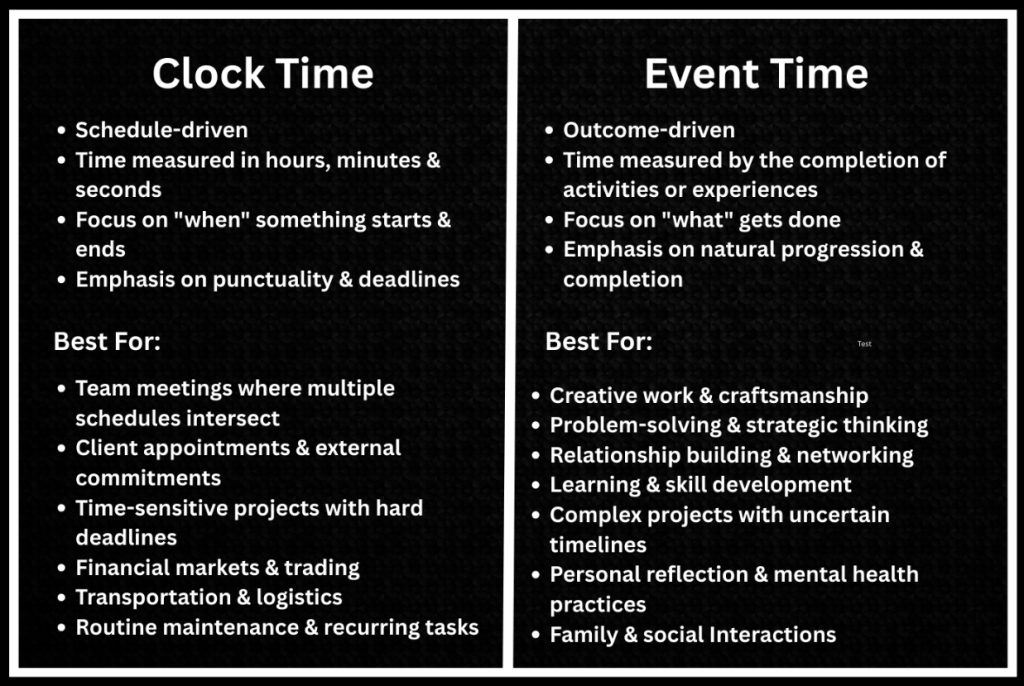Are You Living on “Clock Time” or “Event Time?” (3 Min Read) | Vol. 151
May 16, 2025
“Time is what we want most, but what we use worst.” — William Penn
Are You Living on “Clock Time” or “Event Time?”
I lived in Paris for a few years after college. Every month or so, a friend (or friend of a friend) would visit and want to be shown around. I noticed two distinct approaches to travel.
- “Schedulers” planned their itinerary from hour to hour, seeing how many sites they could see.
- “Savorers” moved from experience to experience, savoring the big stuff and enjoying the moment.
The “schedulers” feared missing out. It was like Paris was a checklist to complete. The “savorers” indexed more into memory making and exploration. It was like they were getting a degree in aspects of Parisian life.
Both had memorable trips, but in completely different ways. The same pattern shows up in how we approach our work. Some of us live by the clock, carefully scheduling each hour. Others focus on completion and flow, letting the task determine the time needed.
While researching The ONE Thing, we read A Geography of Time by Robert V. Levine. He divided the time into “clock time” and “event time.”
Clock time treats time as fixed and external. You work from 9 am to 5 pm with a lunch break at noon.
Event time is based on flow and completion. You start milking the cows at dawn, and you’re done when the last cow is milked.
Time blocking your ONE Thing can be either. But people can twist themselves into knots trying to decide. Do I lead generate from 8 am to 11am? Or do I lead generate from the moment I get to the office until I’ve connected with ten prospects?
So, how do you decide between the two approaches?

In my observation, the most productive people toggle between approaches. Most of the Western world runs on clock time. It’s inescapable. So these individuals adhere to the clock for work that is predictable or that relies on others. They also build in event time for deep work or outcome-focused work. That’s why we advocate for big time blocks for your ONE Thing. Time blocking may rely on clock time to start and end, but when you sequester a large chunk of your schedule, you can run it like event time. You can write the code, create the presentation, study the problem, connect with the clients, etc.
Sometimes you count the hours. Sometimes you make the hours count. Clock time gets things started. Event time gets things done. Clock time is the currency of efficiency, and event time is the currency of completion. Spend both wisely. Your calendar runs on clock time. Your breakthroughs often live in event time.
One question to ponder in your thinking time: Are you measuring your productivity in hours or outcomes?
Make an Impact!
Jay Papasan
Co-author of The ONE Thing & The Millionaire Real Estate Agent

Leave a Reply
You must be logged in to post a comment.